The administrative collapse of the Maluti-a-Phofung (MaP) municipality is the major cause of investor uncertainty in the Special Economic Zone (SEZ). Yesterday I visited the MaP-SEZ to obtain an overview of the progress of an initiative that has the potential to bring investment and employment into one of the most impoverished areas of the Free State (see photographs here and here).
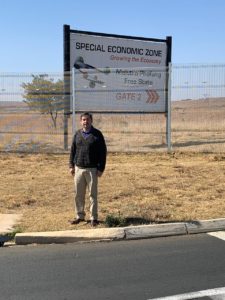
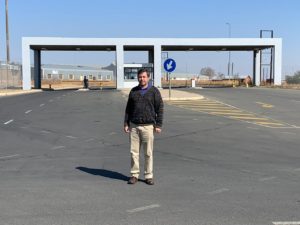
While the MaP-SEZ is showing signs of progress, the decay of municipal services and infrastructure are blatantly visible (see photograph of potholes raw sewerage in the streets of Tshiame here, here and here).
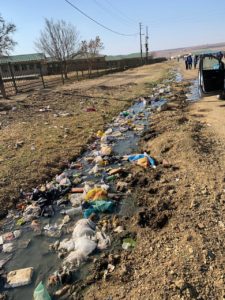
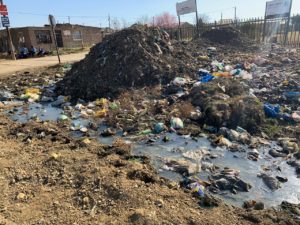
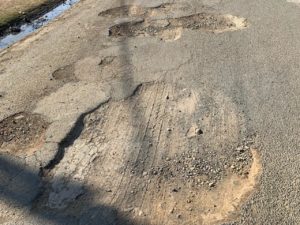
The MaP-SEZ was initiated in 2014 on 1039 hectares of land at Tshiame outside Harrismith. During a briefing to the Legislature Portfolio Committee responsible for Economic Development the CEO of the MaP-SEZ Board, Ms M. Mgemane, indicated that the perimeter fence and lights, critical roads infrastructure, and gatehouses were completed. She further indicated that the project investment is estimated at R550 million and that investments are being negotiated with companies in South Africa with partners in China, Croatia and Denmark. Such investments will have a positive impact on the local community and the credibility of the SEZ.
The SEZ’s are established in terms of a national SEZ programme mandated by the SEZ Act that was proclaimed on 9 February 2016 in order to facilitate the building of SEZ infrastructure, promote co-ordinated planning among key government agencies as well as the private sector and guide the allocation of resources required for such developments.
Industrial development has been a driver of economic development and job creation in most developed economies. The SEZ’s provide transport and logistical networks as well as tax and other financial incentives that are not available to investors outside of such zones. Communities benefit from the direct investment in SEZ’s and indirect economic benefits through value chains linked to such zones. SEZ’s also bring with them people with special management and technical talent and skills.
The greatest inhibiting factor for the success of the SEZ remains the MaP municipality that has experienced financial and administrative collapse due to ANC-factional infighting in the council.
The municipality shows no improvement under provincially appointed administrators. This has impacted on the municipality’s ability to deliver basic services such as safe and reliable water supply, waste water treatment, refuse removal and infrastructure. While the SEZ may provide sound infrastructure to investment infrastructure, professional employees require a decent place to stay with access to basic services and other municipal amenities.
The DA-run Western Cape has a vibrant and successful SEZ’s at Saldanha Bay that has already attracted R3,8 billion in investment into the province. The DA supports the SEZ in the Free State, but our people must note that the poorly managed ANC-run municipal and provincial governments are inhibiting investment and job opportunities.